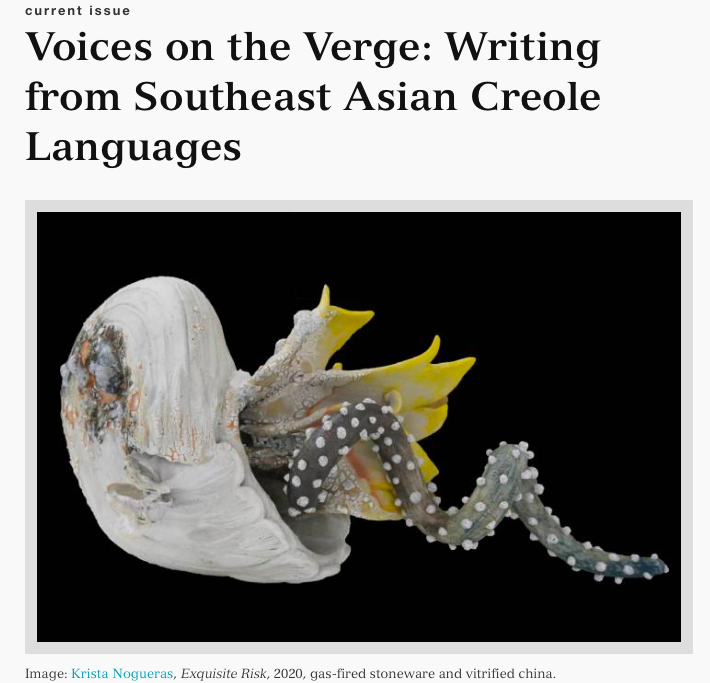|
I am happy to share that two of my late father's poems written in his native tongue, Chavacano, appear in the latest issue of Words Without Borders, featuring writing from Southeast Asian creole languages. Entitled "Ojos del Marijada" (Eyes of the Wave) and "Nor Marcos" (Mr. Marcos), these two poems are accompanied with his own English translations, as well as audio recordings of my aunt, Dr. Sonia Alensub, reading the poems in the original Chavacano. Professor Stefanie Shamila Pillai also wrote a remarkable introduction to this issue, making the vital observation that "[F]or multilingual writers such as those represented in this issue, choosing to write in their heritage languages can be seen as an expression of agency, an active choice to communicate in a nondominant language rather than, for example, an official or national language (e.g., Malay, Filipino, Portuguese, or Chinese), or an international language like English." I would like to thank the Words Without Borders team for this wonderful opportunity to showcase my father's work in Chavacano, especially Nina Perrotta who initially reached out to me. This is a wonderful gift to us during my father's birth month.
3 Comments
Dods
1/6/2022 01:35:05 pm
❤️bueno.
Reply
Ronan Vergara
12/14/2023 04:16:52 am
Good day! I am a senior high school teacher from Camp Vicente Lim Integrated School, Calamba, Laguna. I am currently preparing a module for 21st century literature from the Philippines and the world. I would like to ask permission to use your father's opus Ojos del Marijada (Eyes of the Wave) as the representative poem from the Zamboanga region. Thank you so much!
Reply
6/30/2024 12:16:28 am
As someone deeply interested in linguistic diversity and cultural expression, I found these poems to be a refreshing and enlightening read. Chavacano, a Spanish-based creole language spoken in the Philippines, is not often highlighted in mainstream literary platforms, so seeing it represented in such a prestigious publication is truly significant. Macansantos' work captures the unique blend of cultural influences and historical depth embedded in the Chavacano language. His poetry not only showcases the beauty and complexity of Chavacano but also invites a broader audience to appreciate and explore this lesser-known linguistic treasure. This inclusion is a meaningful step towards celebrating and preserving linguistic diversity, and I look forward to seeing more works like these in the future.
Reply
Leave a Reply. |
Archives
June 2024
Categories |

 RSS Feed
RSS Feed